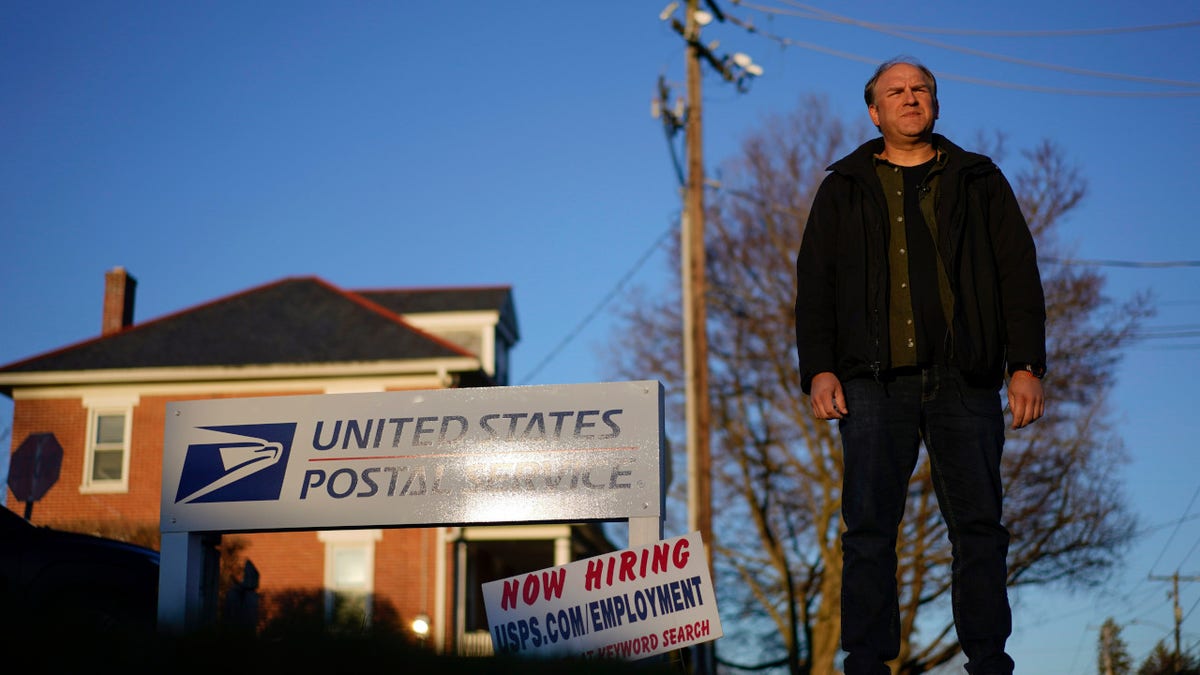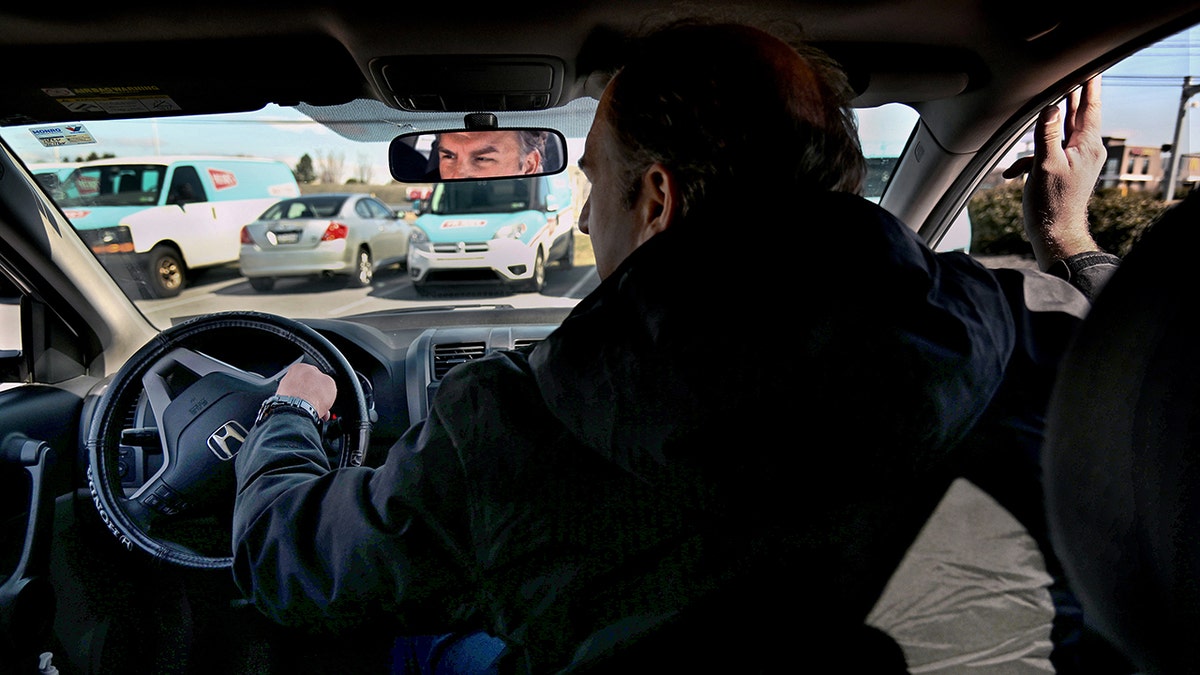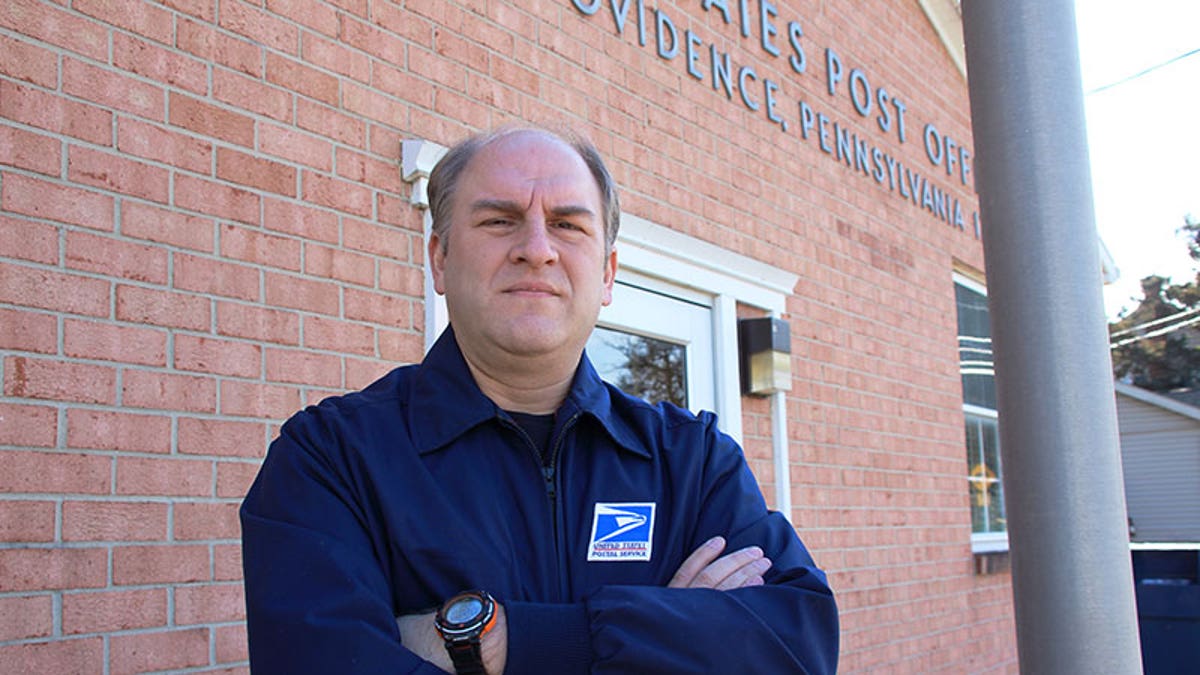Supreme Court hands religious freedom win to postal worker who refused to work on Sunday
The U.S. Supreme Court has ruled unanimously for a postal worker in Pennsylvania in an important religious liberty dispute, over how far employers should go to accommodate faith-based requests in the workplace.
The U.S. Supreme Court has ruled unanimously for a postal worker in Pennsylvania in an important religious liberty dispute, over how far employers should go to accommodate faith-based requests in the workplace.
Gerald Groff, a Christian mail carrier, from Pennsylvania, asked the court to decide whether the U.S. Postal Service could require him to deliver Amazon packages on Sundays, which he observes as the Sabbath. His attorney, Aaron Streett, argued in April that the court should revisit a 50-year-old precedent that established a test to determine when employers should make accommodations for their employees' religious practices.
In ruling for the government worker, the high court overturned its 1977 precedent that said employers had to "reasonably accommodate" an employee's religious beliefs and practices, so long as that would not create an "undue hardship" on the business.
The new decision tightens the "undue hardship" standard, and could make it easier for some individual employees to secure a religious accommodation in the workplace.
SUPREME COURT AFFIRMATIVE ACTION CASE: HOW CALIFORNIA SEES ITS IMPACT

Gerald Groff, a former postal worker whose case was heard by the Supreme Court, stands during a television interview near a "Now Hiring" sign posted at the roadside at the United States Postal Service, Wednesday, March 8, 2023, in Quarryville, Pa. (AP Photo/Carolyn Kaster)
Title VII of the Civil Rights Act of 1964 requires employers to accommodate employees’ religious practices unless doing so would be an "undue hardship" for the business. A Supreme Court case from 1977, Trans World Airlines v. Hardison, said employers could deny religious accommodations to employees when they impose "more than a de minimis cost" on the business.
Groff's attorney argued that the court should scrap the "de minimus" test, which he suggested has been abused by lower courts to deny religious accommodations, in favor of the plain language of Title VII, which would define "undue burden" in the same way it is defined in other federal laws, such as the Americans with Disabilities Act (ADA).
SUPREME COURT TAKES UP RELIGIOUS FREEDOM CASE INVOLVING POSTAL WORKER WHO REFUSED TO WORK ON SUNDAY
"The government believes undue hardship arises whenever there is lost efficiency, weekly payment of premium wages, or denial of a coworker's shift preference," Streett told the justices during oral arguments. "Thus, under the government's test, a diabetic employee could receive snack breaks under the ADA but not prayer breaks under Title VII, for that might cause lost efficiency."
READ THE SUPREME COURT OPINION - APP USERS, CLICK HERE:
U.S. Solicitor General Elizabeth Prelogar had argued against the court overturning Hardison, stressing that nearly half a century of established case law — including cases that protect religious observance — would be "up for grabs" if the court created a new "undue burden" standard. Appearing to concede the de minimus language in isolation can be unclear, she argued that the government's interpretation of the standard over more than four decades is context-based to whichever particular cases are present.
SUPREME COURT SIGNALS IT WILL MAKE IT EASER FOR WORKERS TO CLAIM RELIGIOUS ACCOMODATIONS

Gerald Groff in Lancaster, Pennsylvania, on March 8, 2023. He is demonstrating how postal workers drive from the passenger seat (left hand on the wheel and left foot on the gas and brake leaving the right hand free to place mail in the boxes). A former part-time postal worker, Groff is a devout Christian, and he sued the United States Postal Service claiming religious discrimination because he was being forced to work on Sundays. (Michael S. Williamson/The Washington Post via Getty Image)
"To be sure, as the Solicitor General notes, some lower courts have understood that the protection for religious adherents is greater than ‘more than … de minimus' might suggest when read in isolation," Justice Samuel Alito wrote. "But a bevy of diverse religious organizations has told this Court that the de minimus test has blessed the denial of even minor accomodation in many cases, making it harder for members of minority faiths to enter the job market."
"We hold that showing ‘more than a de minimus cost,’ as that phrase is used in common parlance, does not suffice to establish ‘undue hardship’ under Title VII. Hardison cannot be reduced to that one phrase."
Groff was a fill-in mail carrier who worked at the United States Post Office when other mail carriers were off.
In 2013, USPS contracted with Amazon to deliver packages and workers were required to take Sunday shifts for weekend deliveries.

Gerald Groff lives in Lancaster, Pennsylvania, and is a former postal employee. The U.S. Supreme Court ruled in favor of Groff, making it easier for employees to claim faith-based accommodations the workplace. (First Liberty Institute)
Initially, he was able to work out an arrangement with his supervisors to transfer to another branch that did not deliver on Sundays. When that branch also began Sunday deliveries, Groff was permitted to miss his shifts provided he could find someone to cover for him. However, Groff was frequently unable to do so and missed over two dozen assigned Sunday shifts.
Officials said Groff’s absences created a tense environment and contributed to morale problems. It also meant other carriers had to deliver more Sunday mail than they otherwise would.
Believing that he would be fired for missing Sunday shifts, Groff resigned from his job in 2019. He then obtained representation from the conservative First Liberty Institute, Baker Botts LLP, the Church State Council and the Independence Law Center, and filed a federal lawsuit against the Postal Service.
Groff contends USPS could have accommodated his beliefs by scheduling shifts so that he didn't have to work on Sundays. But the Third Circuit Court of Appeals held in May 2022 that USPS would suffer an undue hardship if it took further action to accommodate Groff.
TIM SCOTT RESPONDS TO OBAMAS' CRITICISM OF SUPREME COURT RULING: ‘A LIE FROM THE PIT OF HELL’

In a statement, a Postal Service spokesperson expressed confidence USPS will ultimately win the case. (Michael S. Williamson/The Washington Post via Getty Images)
The Supreme Court vacated the Third Circuit's judgment and remanded the case for further proceedings consistent with its opinion.
"This is a landmark victory, not only for Gerald, but for every American. No American should be forced to choose between their faith and their job," said Kelly Shackelford, President, CEO, and Chief Counsel for First Liberty. "The Court’s decision today restores religious freedom to every American in the workplace. This decision will positively help millions and millions of Americans – those who work now and their children and grandchildren."
"I am delighted that the U.S. Supreme Court reaffirmed our nation’s commitment to providing equal opportunity and fair treatment in the workplace," Groff wrote in an op-ed for Fox News Digital. "More than that, the Justices affirmed my decision to trust God by honoring the Lord’s Day. I am grateful to all those who have expressed their support —especially my family, community, co-workers, and neighbors."
CLICK HERE TO GET THE FOX NEWS APP
In a statement, a Postal Service spokesperson expressed confidence USPS will ultimately win the case.
"We agree with the Supreme Court’s clarification, which accepts the arguments we made before the Court, and which is fully consistent with the standard we apply when seeking to accommodate the sincerely held religious beliefs, observances, and practices of our employees," the Postal Service said.
"For those reasons, and because we believe the lower court will conclude that providing the requested accommodation here would impose a substantial burden on the Postal Service, we are confident that the Postal Service will again prevail when the case is remanded."
The Associated Press contributed to this report.





















